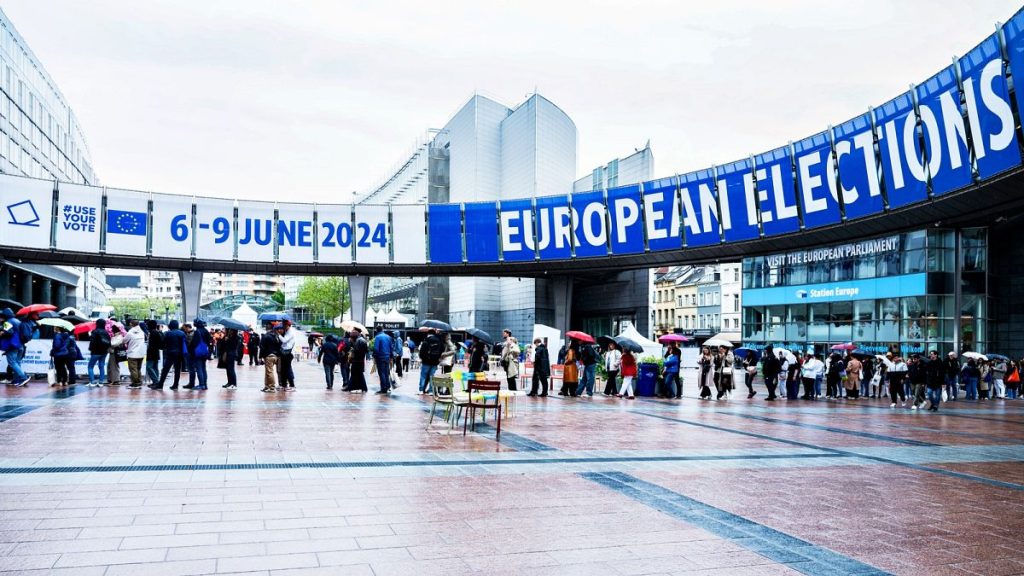The European Parliament elections are underway, with 373 million eligible voters set to elect 720 Members for the next five years. The elections come at a tumultuous time for the EU, with crises such as the conflict in Ukraine, high consumer prices, social inequalities, and climate change at the forefront of voters’ minds. Other pressing issues include asylum applications, demographic changes, rule of law concerns, and foreign interference. The term “polycrisis” has been used to describe the complex challenges facing the EU in the 2020s.
The rise of hard- and far-right parties has been a key focus of this electoral cycle, with parties like France’s National Rally, Italy’s Brothers of Italy, and the Netherlands’ Freedom Party expected to perform well. Liberals and greens are projected to lose seats, while socialists may retain their current share. The influence of the extreme right remains uncertain, with divisions among nationalist factions over key issues like Ukraine, Russia, NATO, and China. The expulsion of Alternative for Germany from the far-right Identity & Democracy group highlights these internal divisions.
Italian Prime Minister Giorgia Meloni has emerged as a significant power broker in European politics, with influence extending into mainstream parties like the EPP. Ursula von der Leyen, seeking a second term as head of the European Commission, has courted Meloni’s support, potentially alienating centrist allies. The EPP’s shift towards the extreme right has sparked criticism from progressives, who fear the normalization of reactionary policies. The enduring “grand coalition” of pro-European parties may be at risk as the EPP considers aligning with parties to its right.
Tensions have escalated in the lead-up to the elections, with bitter recriminations and finger-pointing between rivals. The EPP’s refusal to sign a joint declaration against political violence, along with the liberals’ cooperation with far-right parties in the Netherlands, has further strained relationships within the European Parliament. Von der Leyen’s confirmation hearing in September is expected to be a contentious political test for the new Parliament. Despite these challenges, European voters must first cast their ballots in the upcoming elections.


